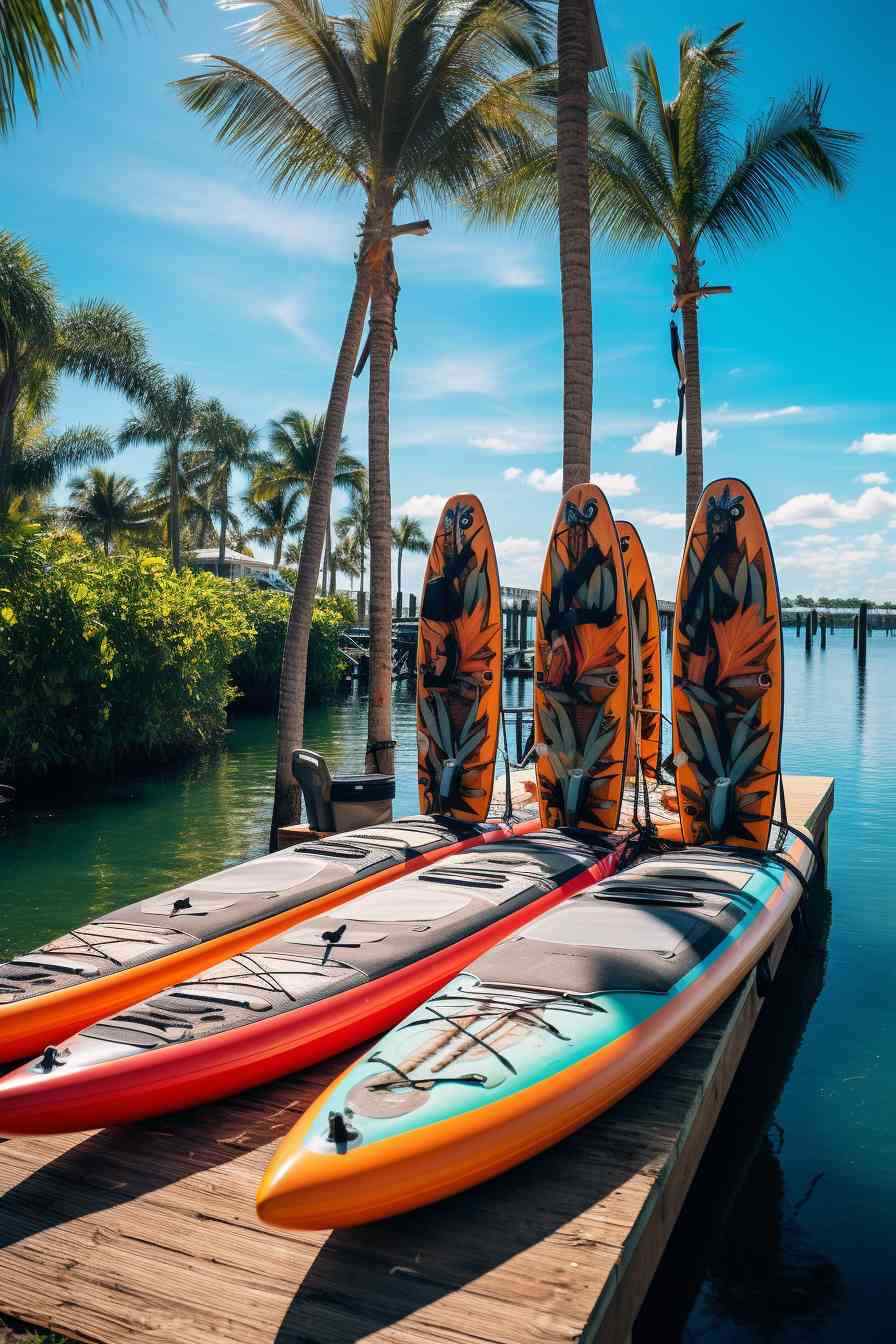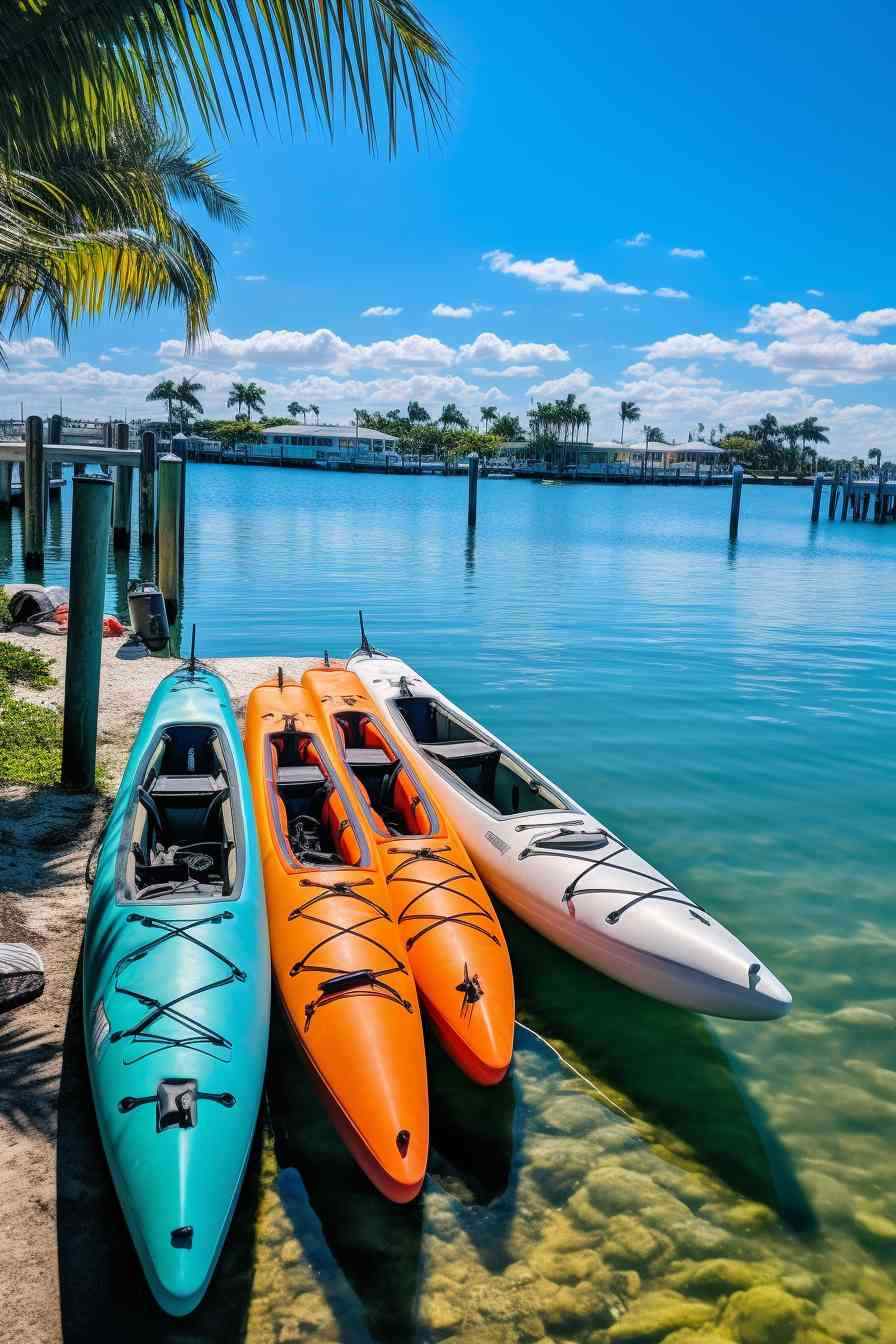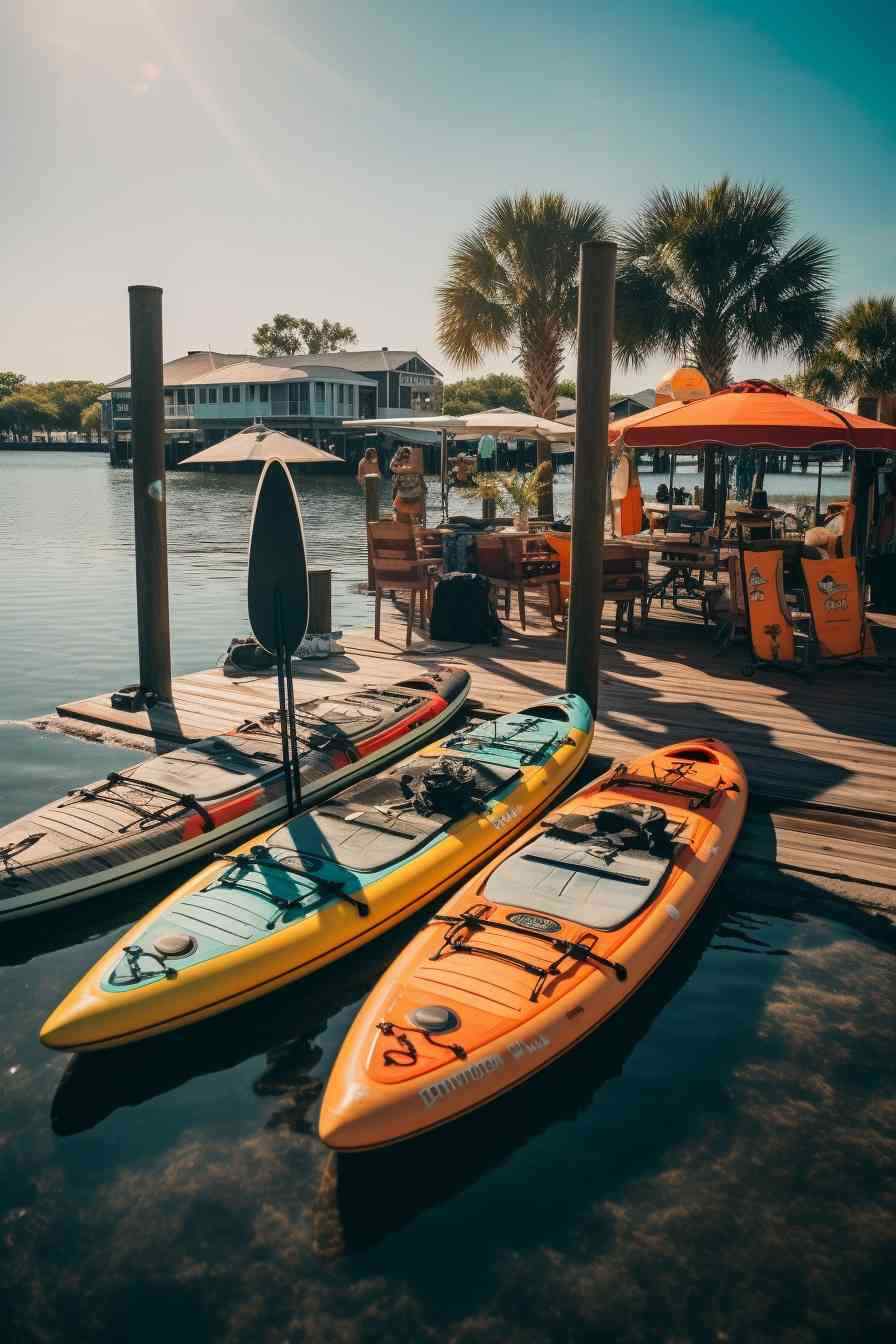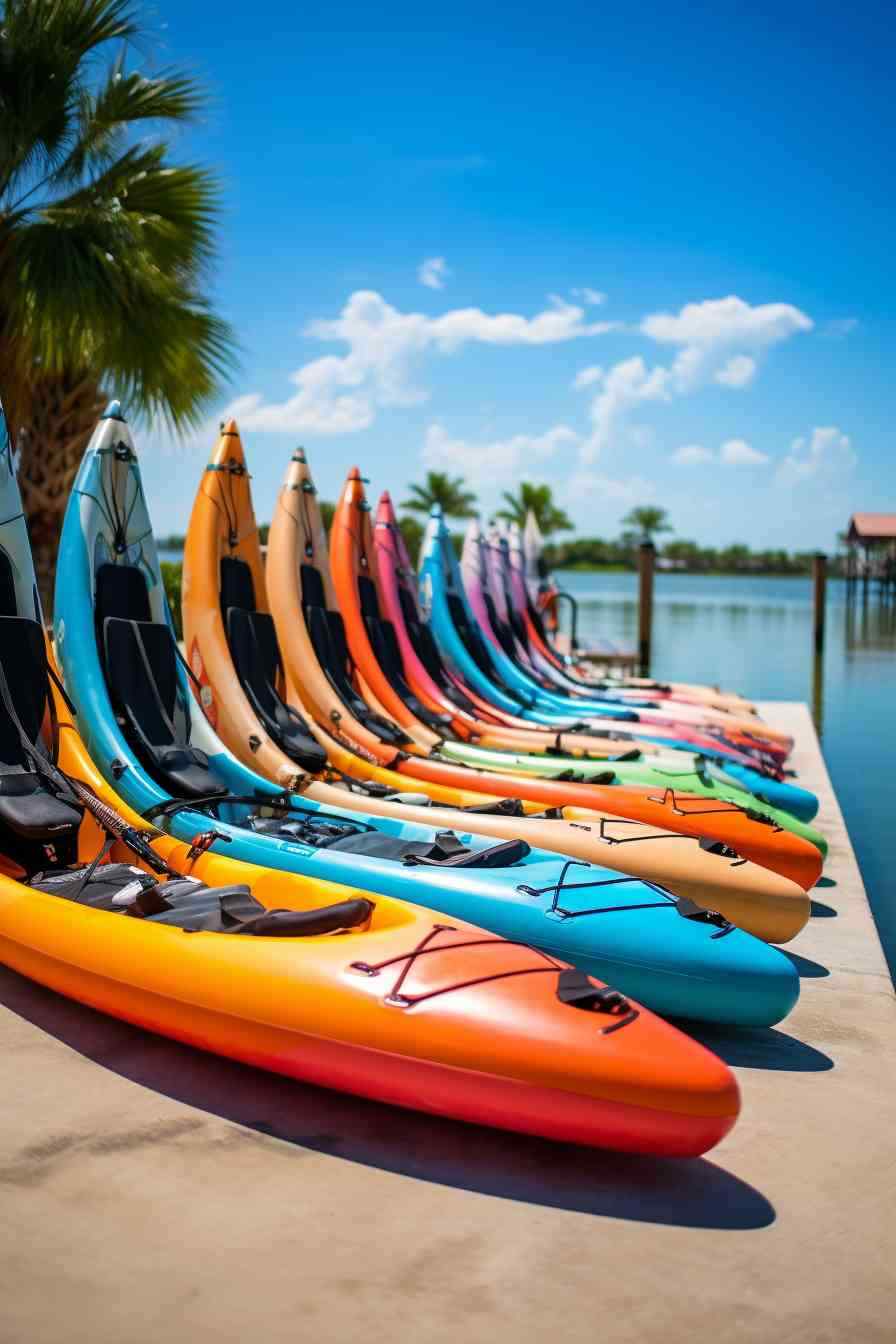Unlocking Profit and Adventure Launch Your Own Paddle Board Rental

Summary
- Intro: How To Start A Paddle Board Rental Business
- How Do I Start A Paddle Board Business?
- Are Inflatable Paddle Boards A Good Investment?
- How Much Does It Cost To Ship A Stand Up Paddle Board?
- Why Do Paddle Boards Cost So Much?
- Final Verdict
- Frequently Asked Questions
- How do I get the ball rolling with a paddle board rental biz?
- What kind of dough am I looking at to set up shop?
- Do I need a specific type of insurance for this gig?
- Should I go solo or bring in a partner?
- What locations are prime for a paddle board rental business?
- How do I decide on rental rates?
- Is it worth offering lessons or tours along with rentals?
- What’s the best way to spread the word about my new venture?
- Should I have an online reservation system?
- With weather being unpredictable, how do I manage that with rentals?
- Any tips for customer service in this kind of business?
- Related Video
- Frequently Asked Questions
Intro: How To Start A Paddle Board Rental Business

Understanding Your Market
Boy, let me dive right in - if you’re eyeing to get into the paddle board rental game, the first thing you gotta do is really get the lay of the land, you know? I mean, it’s crucial to identify who’s gonna be interested in what you’re offering. Are we talking about families? Maybe fitness enthusiasts or are they hardcore paddle boarders? Each group’s gonna have different needs and desires. Also, think about the local waterways – are they calm lakes, flowing rivers, or maybe ocean bays? That’s all part of understanding your market. You want to make sure there’s a demand for paddle boards in your area and, if so, what kind of demand that is. It’s all about doing your homework, and sometimes, that means a bit of sleuthing around, talking to potential customers, and keeping a keen eye on the competition. Just picture yourself as a detective of the water sport world!
Choosing the Right Equipment
Now, onto the nitty-gritty – you can’t run a paddle board rental without the boards themselves, can ya? But hold your horses, it’s not just any board you want to stock up on. Take stock of what’s out there. You’re looking for durability, stability, and a good price point, because, let’s face it, these boards are gonna see a bit of rough and tumble. You’ve got your solid boards and your inflatables; each has its own pros and cons. It’s not just about what’s sturdy – you’ve gotta think about storage, maintenance, and what happens if a board takes a beating (which it will, trust me). It’s a balancing act, literally and figuratively speaking, and the choices you make here are gonna reflect on your business’s image and your pocket in the long run. So choose wisely, and maybe test the waters with a few different models before you buy in bulk.
Licensing and Regulations
Alright, here’s the deal – you can’t just throw a bunch of boards into the water and start charging folks without crossing your T’s and dotting your I’s. I’m talking about the paperwork. Yeah, it’s a drag, but it’s gotta be done. Depending on where you are, there might be a whole slew of regulations to comply with. You’d better believe it’s more complex than a simple bait and switch; we’re talking permits, insurance, safety regulations, maybe even zoning laws if you’ve got a physical location on the shoreline. It’s enough to make your head spin! Getting your ducks in a row legally speaking isn’t just a hoop to jump through. It’s your shield against a world of hurt if something goes sideways. You don’t want to get caught in the lurch ‘cause you overlooked the legalese. Take it from me, it’s worth getting cozy with the rules and regulations – better safe than sorry, right?
How Do I Start A Paddle Board Business?

You know, diving into the paddle board rental biz can be quite the splash—it’s all about combining passion with smarts. The very first wave you gotta ride is the legal stuff. It’s kind of a snooze-fest, but super crucial! Make sure to get all those permits and insurances sorted out. And really, don’t skimp on the insurance; you want to be covered in case someone takes a less-than-graceful tumble off one of your boards.
Next up, location, location, location! It needs to be a spot where folks already are itching to hit the water. You’ll want clear, calm waters that beckon beginners and entice the salty pros alike. And remember, you’re not just renting boards; you’re providing an escape, an adventure. That’s the vibe your spot has to exude.
All right, let’s talk boards. You gotta get a fleet that’s as sturdy as it is snazzy—something that screams ‘Hop on and have a ball!’ And while we’re on the topic, variety is the spice of life, right? Offer different sizes, maybe even throw in some paddle yoga boards, to make sure you’ve got something for every taste and skill level.
And here’s where I get a bit touchy-feely: build relationships. Like, really connect with your customers. Teach ‘em the ropes if they’re new to it, share some cool paddle spots, or chat about the local marine life. Word of mouth is your best friend in this game. Ahh, can you imagine? Sunny days, happy customers, paddles slicing through the water—it’s the dream!
Lastly, don’t be a stranger to marketing. Social media, flyers, partnerships with local businesses—if it gets the word out, you’re all over it like wax on a paddle board. Keep your message as refreshing as the sea breeze and as inviting as calm waters. Get creative, get personal, and for the love of waves, get people pumped about paddle boarding!
How To Start A Paddle Board Rental Business Online
Starting a paddle board rental business online can feel like navigating uncharted waters, but with the right strategy, you can coast smoothly towards success.
- Do your homework – Before you jump in, make sure you understand the market. Peek at the competition, find out what customers want, and decide on a niche. It’s like building your own map before you set sail.
- Get legal – Ensure you’re not paddling in murky waters by getting all the necessary permits and insurance sorted out. It’s definitely not the fun part, but it’s crucial.
- Invest wisely – You’ll need to purchase high-quality boards, paddles, and safety gear. It’s tempting to go all out, but remember—it’s about being smart with your cash, not splashing it all at once.
- Craft a user-friendly website – Your online storefront needs to be as inviting as the calm waters on a sunny day. An easy-to-navigate site gets customers paddling through your offerings with ease.
- Offer online bookings – Streamlining the rental process with online bookings is like catching the perfect wave; it makes everything else easier and more fun for your customers.
- Effective online marketing – Utilize social media and SEO to make sure your business isn’t drifting unnoticed in the vast sea of the internet. You want to be the lighthouse that guides customers to your shore.
- Stellar customer service – Kick it up a notch by providing the kind of customer service that makes waves. Be there to answer questions and help out, and customers will keep paddling back to you.
- Keep an eye on the reviews – What people say about your service can either buoy your business or sink it. Pay attention to feedback and use it to improve their experience.
- Stay flexible and adaptive – The online world changes with the tides; be ready to adjust your strategy, prices, and services. Be as adaptable as a paddle board in changing currents.
- Safety first – This is no shallow talk; ensuring that your customers know how to stay safe on the water is as essential as a life vest. Make sure you provide all the necessary safety info and equipment!
Are Inflatable Paddle Boards A Good Investment?

Let’s dive right in and get our feet wet on this topic, shall we? So, you’re tinkering with the idea of starting a paddle board rental business, and you wanna know if inflatable paddle boards are your golden ticket. Well, I’ve gotta say, they’re a pretty savvy move. Space-saving, more durable than you might think, and super transportable—these bad boys have lots going for them.
Inflatables, or ‘iSUPs’ as they’re affectionately known among the paddleboarding community, tend to shrug off bumps and scrapes way better than their rigid counterparts. My gut tells me that’s a huge plus for a rental biz where your gear’s gonna see a lot of love and, let’s be real here, occasional mistreatment. Plus, when it comes to storing them for the offseason, you can just deflate them and tuck them away. No need for some ginormous storage space. Neat, huh?
And let’s not forget—folks love convenience. An iSUP can be tossed in the trunk or even carried on a backpack, which is a strong pitch for customers who don’t wanna lug around a hard board. Your customers can just grab and go, it’s as simple as that. But remember, the upfront cost might make you wince a bit; good quality iSUPs aren’t exactly pennies. Although, considering their longevity and lower maintenance, they’ll likely paddle their way to being a sound investment in the long run. So, what’s my verdict? If you’re aiming for flexibility and resilience in your venture, iSUPs could definitely help you stay afloat in the rental game.
How To Start A Paddle Board Rental Business In Canada
Starting a paddle board rental business in the Great White North, eh? Sounds like an exciting adventure! Here’s what I think you’ve gotta know to get on the right track.
- First up, you need to really get the lay of the land – research the market, you know? Dig into what’s happening locally and figure out if the folks around are itching to get their paddle on. This can save you a ton of hassle down the road and get your ducks in a row.
- Legal stuff – yuck, but necessary – it’s time to pick out a business structure. Sole proprietorship, partnership, LLC… each has its pros and cons. Plus, don’t forget to apply for all the required licenses and permits! Canadian waters have rules, and you’ll want to stay on the right side of those.
- Insurance is no joke; I mean, you’re dealing with water sports here. You’ll want to cover all your bases to protect your business and your customers from any mishaps that might come up.
- Location, location, oh, and did I mention location? Find the perfect spot that’s accessible, visible, and preferably not swarming with other paddle board rental joints. It’s real competitive out there.
- Getting your fleet of paddle boards is like picking out a new family – exciting, but you want to make sure you’re choosing wisely. Opt for a variety of boards to suit different skill levels and don’t skimp on quality. Trust me, customers can tell the difference.
- I’m not just blowing smoke when I say you need a solid marketing plan. Get the word out through social media, local tourism boards, and partnerships with nearby hotels or resorts. You’ve gotta make some noise to get noticed.
- Think about shelling out a few bucks on an intuitive booking system. This makes life a breeze for you and your customers. You don’t want to be fumbling around with a pen and paper when there’s a lineup of eager paddlers!
- Customer service isn’t just a nice-to-have; it’s the bread and butter of this business. Make sure you and any staff you hire are as friendly as a beaver and know all about paddle boarding safety and techniques.
- Keep an eye on the horizon – you’ll need to stay up to date with trends and customer preferences. Maybe throw in some eco-friendly boards or SUP yoga classes to spice things up!
- Brace yourself for the off-season; it’s not always going to be sunny skies and warm waters. Have a plan to keep the business afloat when the temperatures drop and the tourists fly south.
Remember, starting a business like this isn’t just a walk in the park – or a leisurely paddle on the lake. It takes grit, and a bit of that Canadian can-do attitude, don’tcha know?
How Much Does It Cost To Ship A Stand Up Paddle Board?

Well, golly, starting a paddle board rental business sure has its fair share of considerations, right? And one of the questions that keeps popping up is about the shipping costs for stand up paddle boards. You see, these boards, they’re not your run-of-the-mill parcel. They’re bulky, they’re awkward to handle, and boy, can they rack up the shipping fees!
So here’s the deal – if you’re thinking of diving into this business, you gotta know that the shipping costs can be a real wallet drainer. I’m talking variable expenses, depending on the size, weight, and the distance they’ve gotta travel. It’s kinda like ordering a pizza from the next town over – it’ll arrive, sure, but with an extra charge for the hassle.
Now, we’re not just talking a few bucks here and there. Nope, I’ve seen prices that swing from, say, fifty bucks to hundreds for a single board, believe it or not. It’s enough to make your head spin. And that’s just for domestic shipping. Don’t even get me started on international freight – that’s a whole other can of worms with customs and whatnot. Phew!
Anyway, it’s essential to work this pesky detail into your business plan because it’s not something you can simply gloss over. You’ve gotta be clever, find the best shipping deals or bulk options, maybe even chat up suppliers for a better rate. The bottom line is, it’s a chunk of the puzzle you’ve got to piece together if you don’t want it to sink your new venture. And trust me, I’ve felt that sticker shock firsthand, and it’s something you want to tackle head-on.
Why Do Paddle Boards Cost So Much?
Well, let’s dive right in! Have you ever pondered the price tags on paddle boards and wondered why your wallet’s gotta take such a hit? Turns out, there’s a slew of factors that bump up the cost. It’s not just about floating on water, folks. The top-notch materials that go into crafting paddle boards – we’re talking high-quality foam and sturdy fiberglass or carbon fiber – that stuff’s not cheap. And let’s not forget, the manufacturing process is pretty intricate, which tacks on more dollars.
They also come with this jazzy technology, like lightweight designs that make them a breeze to carry to the water. And durability? You betcha – these babies are built to withstand the sun, salt, and all sorts of scratches and dings. Plus, innovation isn’t static; it’s always marching on, which means companies are constantly updating designs to boost performance and user-friendliness. All that R&D (research and development) costs a pretty penny.
Then, there’s the brand factor. Established brands can charge more because, well, reputation speaks volumes, and they’ve often invested loads into creating a trustworthy image. And think about the variety of paddle boards out there – ones for surfing waves, touring flat water, or even yoga. Each specialized board needs specific features which means more time in the ol’ design workshop.
Lastly, don’t forget the accessories! A paddle board without a paddle is like a car without wheels. Toss in a leash, a life vest, and maybe a waterproof pouch for your essentials, and the cost just keeps climbing.
Phew, that’s quite the rundown, huh? But hey, if you’re planning to start a rental business, understanding these costs is key. Clients will be counting on high-quality, durable gear, and that means you’ll need to invest in the good stuff. Quality comes with a price, but it’s also what’ll keep your paddlers happily coming back for more.
Final Verdict
So, let’s dive right into it—starting a paddle board rental biz? It’s a sweet idea with waves of potential. I’ve gotta be real with you though, it’s not all smooth sailing. There’s stuff to consider like insurance, permits, the whole nine yards. But hear me out; it’s about giving folks a taste of adventure without them having to buy their own gear. It’s lucrative when done right, but there’s a trick to balancing the logistics with the laid-back vibe you want to sell.
Now, I’ve seen my fair share of rental places pop up and vanish like a mist on the ocean. What makes the difference? Savvy owners know it’s all about location, location, location. Find a spot where the water’s calling out to people, and half your work is done. But hey, don’t forget to weatherproof your plans, ‘cause nature has a habit of throwing curveballs.
Let’s not beat around the bush either—getting your brand out there is key. I’m talking social media, local collabs, maybe some sweet discounts to get people hooked. You’ve got to paddle hard to get ahead in this game, and sometimes that means getting creative with your marketing.
All in all, starting a paddle board rental business? It’s a stellar plan if you’ve got the gumption for it. Just keep your eyes on the horizon and be ready to ride the waves of entrepreneurship. And my two cents? Go for it, but remember it takes more than just a love for the water— it takes grit and a solid strategy.
Frequently Asked Questions
How do I get the ball rolling with a paddle board rental biz?
Ah, just thinking about the open water and the joy of paddle boarding stirs up some excitement, doesn’t it? Well, first off, you gotta research the market. See what the competition’s like and if there’s a sweet spot for your venture. After that, craft a solid business plan that covers your vision, financial projections, and marketing strategies. Don’t skip this; it’s your roadmap to success.
What kind of dough am I looking at to set up shop?
Honestly, it’s not peanuts. You’ll need to invest in a fleet of paddle boards, life vests, a rental kiosk or space, and possibly vehicles if you’re delivering. Plus, there’s insurance and marketing costs. Generally, you might be looking at a few grand to get things up and running, but it depends on how grand you’re going.
Do I need a specific type of insurance for this gig?
Yep, you’ll need to cover your bases. Look into general liability insurance to protect against accidents and injuries. Also, consider property insurance for your gear and possibly vehicle insurance if you’re offering delivery. It’s not just a good idea—it’s a must to keep your business afloat (pun intended).
Should I go solo or bring in a partner?
That’s a biggie. Going solo means you’ve got total control, but it’s also all on you. Bringing in a partner can mean extra hands on deck and more brainpower, but you’ll share the decision-making. Weigh the pros and cons, and trust your gut.
What locations are prime for a paddle board rental business?
Location, location, location—it’s key. You’ll want to launch near bodies of water that are paddle-board friendly, like lakes, calm ocean areas, or rivers. High foot traffic areas are golden because they up your chances of catching the eye of potential customers who are up for some water fun.
How do I decide on rental rates?
You gotta scope out the competition and see what they’re charging. Your rates should be competitive but also reflect your costs and desired profit margin. And don’t forget to offer some deals now and then—people love a good bargain!
Is it worth offering lessons or tours along with rentals?
Totally! It’s a fab way to rake in more bucks and give newbies some confidence. Plus, it sets you apart from places that only offer rentals. You’re selling an experience, not just a board.
What’s the best way to spread the word about my new venture?
Get social! Use social media like a pro, and consider local ads or partnerships with nearby businesses. Word of mouth is pure gold, so make sure your customers have an experience worth shouting about. And, of course, a snazzy website doesn’t hurt either.
Should I have an online reservation system?
Yes, definitely! It’s all about convenience. An online system means customers can book a board while they’re still in their PJs at home. It’s also easier for you to manage bookings and keeps things organized.
With weather being unpredictable, how do I manage that with rentals?
Mother Nature does like to keep us on our toes, huh? Have a clear policy in place for cancellations or rescheduling due to weather. Keep your customers informed with updates via text or social media. And on those soggy days, use the time for equipment maintenance or marketing.
Any tips for customer service in this kind of business?
I’d say treat your customers like royalty; delight them, and they’ll come back with friends. Be friendly, be helpful, and always have a stash of stories or tips to share. It’s all about creating that personal touch. And remember, a smile goes a long way!


Comments